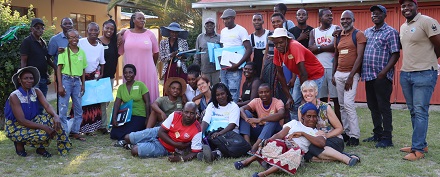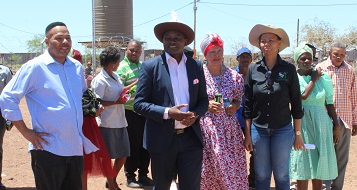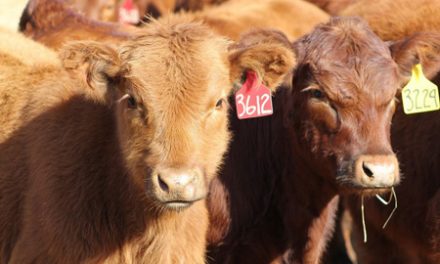
Zambezi farmers learn to practise organic agriculture

Thirty small-scale farmers are currently undergoing a year-long Multiplier Support Programme hosted by the Namibia Nature Foundation (NNF) and the Namibia Organic Association through the Knowledge Hub for Organic Agriculture in Southern Africa project.
The programme promotes the adoption and scaling-up of agro-ecology and organic agriculture in the Zambezi region.
According to a statement from the NNF, the need for the support programme in the Zambezi Region arose out of challenging socio-economic and environmental conditions which include limited use of natural products (manure and mulch), low productivity, maize monoculture, limited government and non-governmental extension efforts compared to farmer numbers, and land degradation. These all pointed to the need for more flexible extension efforts that will support the practical implementation of low-cost, sustainable agriculture.
The Multiplier Support Programme includes aspects of farming with nature and permaculture design. Participants also learn about the importance of life goals and financial management through effective sharing of information. They also get ‘homework’ to put their new knowledge to practice, and to do investment simulations.
“It gives us knowledge on how to keep our soil fertile and it’s a cheaper way of farming,” commented Mr Lubembo, a participant of the Multiplier Support Programme, when asked why organic agriculture is important.
The programme is one of the knowledge hub’s activities to promote a greater understanding of organic agriculture and to boost its implementation inside and outside conservancies in the Zambezi Region. The knowledge hub is a partnership funded by the German Government and implemented by the GIZ (Gesellschaft für Internationale Zusammenarbeit). It is one of five Knowledge Hubs for Organic Agriculture in Africa to disseminate knowledge and shape networks on national, regional, and continental level.
The support programme participants include individuals from freelance networks as well as salaried staff of various organisations in the realm of agricultural extension, who were identified through previous training events and from referrals.
Mate Phedant, a Multiplier from Singalamwe said, “Two or three heads are better than one. If we don’t share, we will not get ahead. I have gotten a lot of knowledge and people come and visit my house to learn. I appreciate this.”
Ultimately, the goal is to develop socially and economically desirable employment for the Multipliers by being hired by different agencies. Through a sister project, the NNF is leading the way by hiring five Multipliers (local women from peri-urban Katima Mulilo) to train farmers on agro-ecological and organic crop and vegetable production in the Sikunga Conservancy on the eastern Caprivi floodplain.












































